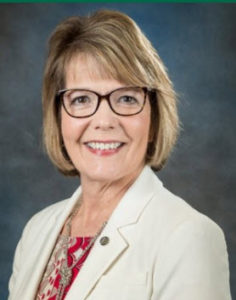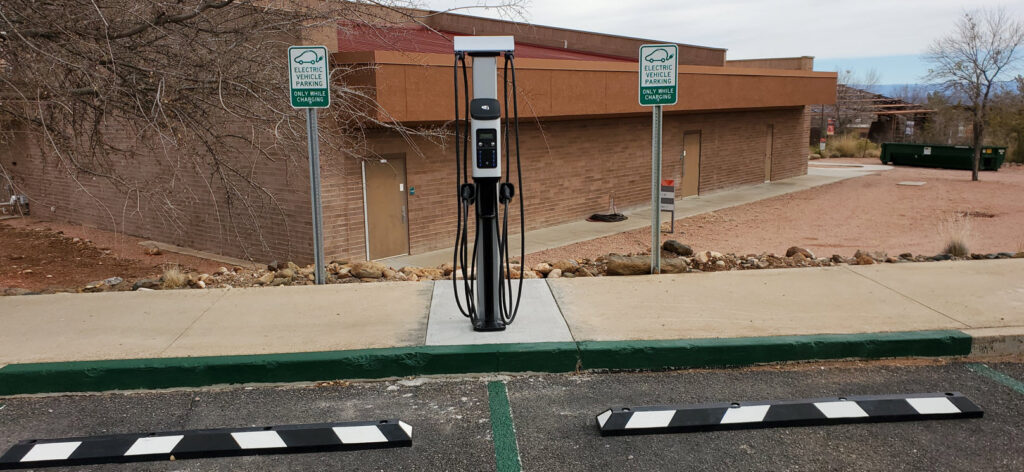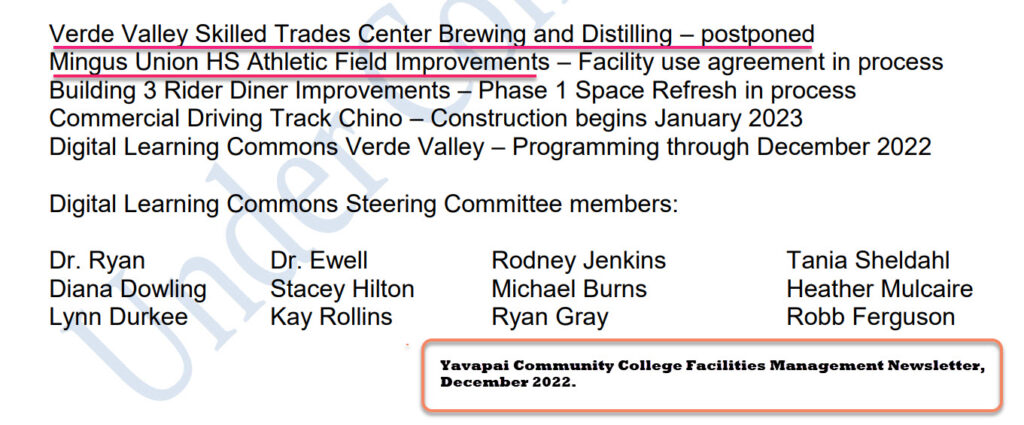Author Archive for R. Oliphant – Page 38
HIGHER LEARNING COMMISSION REACCREDITS YAVAPAI COMMUNITY COLLEGE FOR TEN YEARS
By R. Oliphant
Sunday,
January
29th,
2023
Categories : accreditation
GOVERNING BOARD SCHEDULED TO HOLD ALL DAY WORKSHOP TUESDAY, JANUARY 31, 2023 WITH BOARD ELECTIONS AND POLICY DISCUSSIONS
By R. Oliphant
Sunday,
January
29th,
2023
Workshop to be held at the Career and Technical Education Center at Prescott airport to begin at 9 a.m. and run to 4 p.m.
The Yavapai Community College District Governing Board is scheduled to hold an all-day workshop on Tuesday, January 2023. The Board’s meeting schedule calendar shows the workshop is to be held at the Career and Technical Education Center at the Prescott airport. It will begin at 9 a.m. and run to 4 p.m. This will be the first meeting of the District Board since November 2022.
The agenda for the workshop is posted on the Governing Board website, which you may reach by clicking here.
One of the first items of business will be nominations and election of Board officers. There is no Open Call to the public noted on the Agenda for this meeting.
Under Arizona law, the public has a right to attend, listen, tape record, or videotape these meetings. The public may not disrupt, but may speak during the call to the public at the beginning of this meeting if the call is on the agenda. See Ariz. Att’y Gen. Op. No. I78-001.
Categories : Meeting Notice
YAVAPAI COLLEGE HIRES NEW ASSOCIATE DEAN OF SCIENCE, MATH AND ADULT BASIC EDUCATION
By R. Oliphant
Friday,
January
27th,
2023
Dr. William Perry Baker joined the Community College in January with a long and distinguished career
Dr. William Perry Baker joined Yavapai Community College in January as its new Associate Dean of Science, Math and Adult Education. He has a long and distinguished career. His position is classified as “Associate Dean, Division 2.”

Dr. William Perry Baker (Yavapai Community College photo)
He graduated from the Des Moines, Washington Highline Community College in 1980 after two years of study. He then went on to obtain a bachelor’s degree in microbiology from the University of Washington. He earned a master’s degree in education at Grand Canyon University and a doctorate in zoology at Arizona State University. He has worked a several institutions before coming to Yavapai Community College including Arizona Christian University, Midwestern University and Maricopa Community College District’s Office of Public Schools Program.
He is the author or co-author of 31 articles in a variety of journals including: The American Biology Teacher, The Science Teacher, Science Activities, Science Scope, The Journal of College Science Teaching, Journal of Research in Science Teaching and Professional Development in Education. He has supervised 12 postgraduate and 21 undergraduate research projects for medical and science students including projects of seven students who received grant funding. He has given numerous regional and national presentations, as well as two invited international lectures.
Dr. Baker has served on the Board of Directors for the Arizona Alliance for Science, Mathematics & Technology Education and as board member and president of the Arizona-Nevada Academy of Science. He was editor of the, Journal of the Arizona Nevada Academy of Science, from 2006-2008.
According to the Community College staff directory, Dr. Baker has been assigned to the Prescott Campus. It is believed that he will reside in Prescott.
Categories : ADMINISTRATION
OLLI AT YAVAPAI COMMUNITY COLLEGE PRESENTS FREE TO PUBLIC “WINEMAKING AT THE SOUTHWEST WINE CENTER” PROGRAM
By R. Oliphant
Sunday,
January
22nd,
2023
Verde Campus, Room M-137, Tuesday, January 24, from 12:30 – 1:30 p.m. | Learn about the scientific process of how grapes are turned into wine, and how the winemaking culture is forming in Arizona
 Michael Pierce, director of Viticulture and Enology at the Southwest Wine Center, will discuss “The Fruits of Our Labor” at Yavapai Community College Verde Valley Campus, 601 Black Hills Drive, Room M-137, Tuesday, January 24, from 12:30 – 1:30 p.m. The program is free and open to the public.
Michael Pierce, director of Viticulture and Enology at the Southwest Wine Center, will discuss “The Fruits of Our Labor” at Yavapai Community College Verde Valley Campus, 601 Black Hills Drive, Room M-137, Tuesday, January 24, from 12:30 – 1:30 p.m. The program is free and open to the public.
Learn about the scientific process of how grapes are turned into wine, and how the winemaking culture is forming in Arizona with the help of the Viticulture and Enology program at Yavapai Community College and the Southwest Wine Center. Pierce will cover a brief overview of the science of winemaking with a focus on what makes the Verde Valley special. Attendees will be provided with information on the program and the graduates who are leading the Arizona wine industry.
Is the Verde Valley beginning to look like the NAPA Valley as more and more grape vines and wine tasting rooms are opened throughout the area?
The Osher Lifelong Learning Institute (OLLI) is sponsoring the program. OLLI is a program of the Division of Lifelong Learning at Yavapai Community College. For information call 928-649-4275 or email OLLIsv@yc.edu or visit the website at YC.edu/ollisedonaverde.
Categories : Event
KUDOS TO VP DIANE RYAN FOR HER TREMENDOUS SUCCESS WITH DEVELOPING THE USE OF OPEN EDUCATIONAL RESOURCES COURSE MATERIALS, WHICH ARE NOW SAVING STUDENTS THOUSANDS OF DOLLARS IN BOOK COSTS
By R. Oliphant
Saturday,
January
21st,
2023
Put in charge of OER development in 2019, Ryan’s accomplishment stands out as new four-year Bachelor of Science program announced it will use all free open source textbooks in all four years
In November 2019, Yavapai Community College President Dr. Lisa Rhine tasked Dr. Diane Ryan with leading the initiative to lower the cost of student textbooks. At an Osher Brown Bag Buzz program on the Verde Campus, Dr. Ryan announced the plan to utilize open educational resources (OER) for course materials in an effort to reduce costs. The program, if successful, could save students up to $1,600 annually on textbook expenses.

Dr. Diane Ryan
The initiative was a part of President Dr. Lisa Rhine’s effort to make post-secondary education available to everyone in the County at the lowest possible cost. It was estimated in 2019 that the OER program would take from three to four years before it was fully implemented.
After taking charge, Dr. Ryan quickly moved forward with developing the OER plan. At the February 2020 meeting of the Community College Governing Board, she informed the Board that faculty had already begun training in the use of OER and expected some classes to use these materials in fall 2020.
Dr. Ryan’s cost reduction plan made a noticeable impact on the cost of student textbooks in just one year. On September 14, 2021, College President Dr. Lisa Rhine reported to the District Governing Board that the project has already saved students over $300,000.
As Dr. Ryan progressed with training faculty and implementing the cost reduction plan, the project received additional funding. In August 2022, the College announced that it was awarded a $2 million grant from the U.S. Department of Education Fund. The funds were to be used in partnership with seven other community colleges to further develop OER materials.
Dr. Ryan’s success with developing OER was demonstrated on January 11, 2023, when she announced that the Community College had created and approved a four-year online Bachelor of Science (B.S.) program. The B.S. program was also developed under Dr. Ryan’s guidance.
The Bachelor of Science program offers many benefits, one of which is the cost of textbooks for the entire four-year program. Dr. Ryan announced that all books for all four years will be free. This is made possible by the use of Open Resources materials that have been integrated into the curriculum, thanks to her efforts.
Kudos to Dr. Ryan for her outstanding work on OER!
Categories : ADMINISTRATION
A COUPLE OF ELECTRICAL VEHICLE CHARGING STATIONS TO BE INSTALLED ON PRESCOTT AND VERDE VALLEY CAMPUSES
By R. Oliphant
Friday,
January
20th,
2023
Near buildings 2, 19 on the Prescott Campus; near building I on the Verde Valley Campus; will accommodate only a couple of cars at a time
 Yavapai Community College is putting its toe into the Electrical Vehicle waters by establishing its first charging stations for electrical vehicles on the Prescott and Verde Valley campuses. The Verde Campus station will accommodate two EVs at a time.
Yavapai Community College is putting its toe into the Electrical Vehicle waters by establishing its first charging stations for electrical vehicles on the Prescott and Verde Valley campuses. The Verde Campus station will accommodate two EVs at a time.
It is not clear how much will be collected by the College, if anything, for charging. It is also not clear whether the charging stations are Level 1, Level 2 or above. However, it is suspected that they are Level 1 (slow) charge stations.
Level 1 charging stations provide a low-power (12-20 Amp), which is generally used for long-term charging. It is sometimes referred to as slow or ‘trickle’ charging. Level 1 long-term charging is found at some airports and hotels. It is also found at some universities and casinos.
Level 2 charging stations use a 240 volt outlet (like a clothes dryer or oven) and deliver more power to a car to charge it faster.
Level 3 chargers are still quite rare in the United States. It is claimed that a level 3 charger can fill a battery at a rate of 75 – 1,200 miles per hour. It would top off an empty battery in 30 minutes.
There are a number of small Tesla destination charging stations in the Verde Valley, with the largest number in the Sedona area.

Categories : Prescott Campus, Verde Campus
TEN MILLION DOLLAR VERDE VALLEY BREWERY PROJECT REMAINS ON “HOLD” FOR REASONS YET TO BE DIVULGED BY THE COMMUNITY COLLEGE PRESCOTT-BASED EXECUTIVES
By R. Oliphant
Thursday,
January
19th,
2023
“Postponement” announcement found in Yavapai Community College Facilities Management Newsletters of October and December 2022 | Length of postponement unclear | District Governing Board and public await an explanation
 The exact status of the proposed and approved $8 to $10 million Verde Valley beer brewery project remains unclear. Although the Prescott-based executives who decide major Community College issues for the Verde Valley have made no formal announcement, the postponement notice appears in the October and December Community College Facilities Newsletter. (See below)
The exact status of the proposed and approved $8 to $10 million Verde Valley beer brewery project remains unclear. Although the Prescott-based executives who decide major Community College issues for the Verde Valley have made no formal announcement, the postponement notice appears in the October and December Community College Facilities Newsletter. (See below)
The project was approved in May 2022 by the District Governing Board by a 4-1 vote.
The nature of the postponement remains a mystery. Neither the public nor the District Governing Board have so far been informed of the postponement and the reasons for it. The President of the College, Dr. Lisa Rhine, had an opportunity to explain the postponement at the October and November 2022 District Governing Board meetings but said nothing.
The District Governing Board is not expected to hold a business meeting until February where an explanation regarding the postponement might be forthcoming.

Categories : Career and Technical Education
VERDE VALLEY YOUNG ARTISTS SHOWCASE EXHIBIT JANUARY 19 TO FEBRUARY 16
By R. Oliphant
Sunday,
January
15th,
2023
To be held at Patty McMullen-Mikles Art Gallery on Verde Campus in Clarkdale; will showcase Verde Valley High School students art work
 Yavapai Community College has announced the Verde Valley Young Artists Showcase that will be held on the Verde Campus at the Patty McMullen-Mikles Art Galley from January 19 to February 16. This will be a showcase of Verde Valley High School Students art work.
Yavapai Community College has announced the Verde Valley Young Artists Showcase that will be held on the Verde Campus at the Patty McMullen-Mikles Art Galley from January 19 to February 16. This will be a showcase of Verde Valley High School Students art work.
The exhibition features drawings, paintings, photographs, mixed media collages, ceramics, and more.
The Opening Reception is scheduled for January 19 from 5:00 to 7:00 at the Patty McMullen-Mikles Art Gallery on the Verde Valley Campus. The exhibit is free and open to the public.
Gallery hours are: Tues/Wed/Thursday 10:00 a.m. to 3 p.m.
Categories : Art programs
YAVAPAI COMMUNITY COLLEGE HAS OUTSTANDING FEBRUARY LINE-UP OF MAJOR CULTURAL AND ENTERTAINMENT EVENTS FOR WEST COUNTY RESIDENTS AT THE PERFORMING ARTS CENTER ON THE PRESCOTT CAMPUS
By R. Oliphant
Thursday,
January
12th,
2023
The 70,000 or so Sedona and the Verde Valley residents have so far been left out of similar major cultural programming events for the months of January and February 2023
In February, Yavapai Community College continues its slate of outstanding cultural and entertainment events, most of which will be attended by west side residents and all of which are scheduled for the Performing Arts Center on the Prescott Campus.
On Friday, February 3 at 7 p.m. the New York Gilbert & Sullivan Players will perform “H.M.S. Pinafore” at the Yavapai Community College Performing Arts Center. The College describes the Players as “those comic opera magicians, who brought us The Mikado and The Pirates of Penzance, are back with Gilbert & Sullivan’s delightful tale of true love, class warfare, hidden identities, and a web of secrets that threaten the politest ship in Her Majesty’s Fleet.” Tickets: $59 | $47 | $32 | Youth $10.
The Arizona Philharmonic manos percussion quartet will perform at the Yavapai Community College Performing Arts Center on February 5, 2023 at 3:00 p.m. The College describes the trio as follows: “The percussion trio, manos received a resounding standing ovation in 2020. Expanding to a quartet, AZ Phil’s principal percussionist Eddie Solomon now joins our timpanist Maria Flurry and Tucson Symphony Orchestra percussionists Homero Cerón and Fred Morgan. In this concert they combine their percussion instruments of wood, metal, skin, and water to snare you into a thoughtfully curated, virtuosic program of familiar favorites and exotic musical selections. From delicate to bold to unabashedly fun, manos delights the ears and fills the soul with percussion’s wealth of musical possibilities.” Ticket range from $10 to $49.
As a part of its satellite program attended by mostly west Yavapai County residents, the College will show the National Theatre Live: Henry V, at the Performing Arts Center on February 15, 2023 at 6:00 p.m. Tickets range from $10 to $15.
The presentation is described by the College as “Kit Harington (Game of Thrones) plays the title role in Shakespeare’s thrilling study of nationalism, war and the psychology of power. Captured live from the Donmar Warehouse in London. Fresh to the throne, King Henry V launches England into a bloody war with France. When his campaign encounters resistance, this inexperienced new ruler must prove he is fit to guide a country into war. Directed by Max Webster (Life of Pi), this exciting modern production explores what it means to be English and our relationship to Europe, asking: do we ever get the leaders we deserve?”
Rita Rudner will perform at the Performing Arts Center Sunday, February 19 at 7 p.m. Tickets: $59 | $47 | $32. The College describe her program as follows: “Laugh, and think – but mostly laugh! Find out why Rita’s epigrammatic one-liners and sly observations about life, gender, and relationships have made her a late-night talk show favorite and one of Las Vegas’s hottest tickets.”
Bill Saxton & the Harlem All-Stars will perform at the Yavapai Community College Performing Arts Center on February 24, 2023 at 7:00 p.m. The College described the event as follows: “Hear straight-ahead jazz saxophone the way it was meant to be when this renowned jazz sideman – alumnus of Harlem’s Nick’s Jazz club and six-album veteran – lights up the stage with his quartet. As part of our intimate Cabaret Series, your $55 general admission ticket includes seating at a table onstage, appetizers, desserts, coffee/tea and a cash bar.”
The Prescott Pops Symphony will present “Irving Berlin: From Rags to Ritzes,” at the Yavapai Community College Performing Arts Center on February 26, 2023 at 3:00 p.m. Tickets range from $5 to $45. The College describes the event as follows: “Composer and lyricist Irving Berlin is one of the greatest American songwriters. Born in Russia in 1888, his family fled the persecution of their Jewish community, emigrating to New York City in the mid 1890s. The Prescott Pops Symphony and special guests present the marvelous music of this brilliant composer. “There’s No Business Like Show Business,” “Cheek to Cheek,” “Always,” “Puttin’ On The Ritz,” and many more of his classics will charm and enchant you. An afternoon of unforgettable music – we promise you’ll leave with a happy heart!”


Categories : Performing Arts Center
AFTER ALMOST TWO YEARS OF WORK, YAVAPAI COMMUNITY COLLEGE WILL OFFER A FOUR-YEAR BACHELOR OF SCIENCE DEGREE IN BUSINESS ENTIRELY ONLINE BEGINNING THE FALL OF 2023
By R. Oliphant
Thursday,
January
12th,
2023
New B.S. possible because of legislation passed by the Arizona House in February 2021 and approved by the Senate in May 2021 (Senate bill 1453)
Yavapai Community College announced at a news conference held on the Prescott Campus January 11, 2023, that it will offer a Bachelor of Science Degree in Business online when the fall 2023 semester begins August 12, 2023.
The Yavapai College announcement follows one made in December by Maricopa Community College. Maricopa announced that the Higher Learning Commission had accredited it for seven bachelor’s degree programs, which will be offered in the fall 2023.

Dr. Diane Ryan
Students who desire to register for Yavapai’s Business classes can do so as early as April 17, 2023. They should visit yc.edu/bsb for more information.
The curriculum, according to Dr. Diane Ryan, Vice President of Academic Affairs for Yavapai Community College, who oversaw development of the four-year Bachelor’s degree, will consist of “120 applicable credits specifically designed to help students achieve career success.”
The benefits to students who take the course follow:
- It is designed for new students, continuing students, or graduates. Those who are fresh out of high school, have no college, or already have an associate degree in any discipline can enroll.
- It is offered entirely online.
- It can be completed in the traditional pattern for a full-time student of 30 credits per year, which will take four years to complete.
- It can also be completed through 8-week classes, significantly reducing completion time. The 8-week classes will start in August, October, January, March, and June
- It is incredibly affordable when compared to other baccalaureate degree options. Students will pay $155 per credit for in-state tuition for upper-division courses.
- It will use Open Educational Resources for all classes, which means meaning that there are no textbook costs for students.
- It has no associated student fees.
It has a Credit breakdown of:
- 31 credits of general education requirements
- 44 credits of lower division requirements, which are introductory business courses
- 30 credits of upper division requirements in 300 and 400-level courses
- 15 credits for the organizational management and leadership concentration
Registration for classes begins on April 17, 2023, with the classes starting at the beginning of the fall semester on August 12.
Categories : CURRICULUM
Eye on Yavapai College
Copyright © 2025 All Rights Reserved
Copyright © 2025 All Rights Reserved